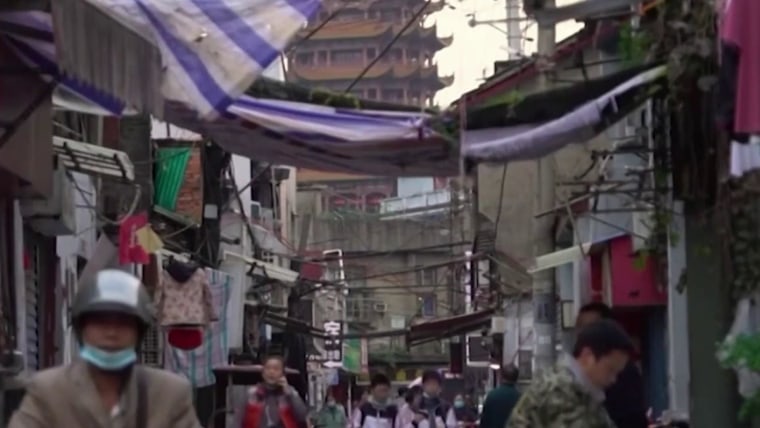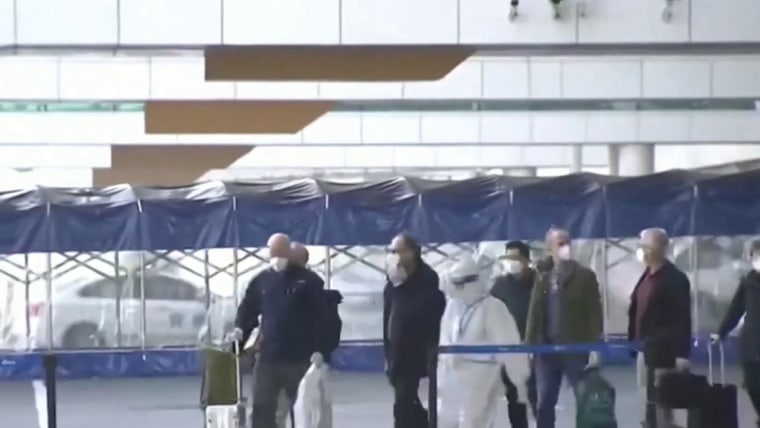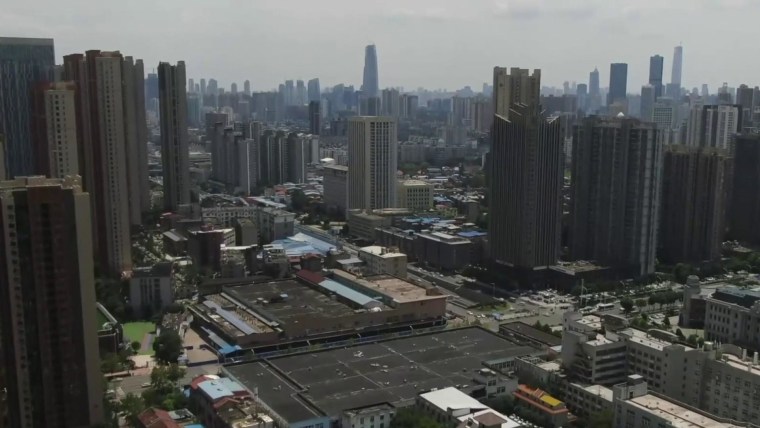China's Covid success story is also a human rights tragedy
I imagine January has been a relatively good month for Chinese President Xi Jinping. The Covid-19 pandemic appears to be largely under control in his country, and China's is the only major economy in the world expected to report growth for 2020. Meanwhile, several thousand people a day are dying from the virus in Xi's archrival across the Pacific, the United States. The resurgence of infections keeps sending shock waves through the U.S. economy.
When you peel back the layers, there's a distinct price that has come with the normalcy, mostly in the form of human rights violations.
And on Jan. 7, Xi would have awakened to see images from the previous day of lawmakers crouching under desks or fleeing in fear when a violent mob stormed the U.S. Capitol.
The glee of China's state media was palpable: "History has not ended. What has ended is the myth of America." On Jan. 11, Xi told a gathering of government officials that "the world is undergoing profound changes unseen in a century, but time and the situation are in our favor."
The contrast between the tumult in the U.S. and the apparent normalcy in China is making some people in China more supportive of their government. But when you peel back the layers, there's a distinct price that has come with the normalcy, mostly in the form of human rights violations.
It's an unexpected turn of fate; a little more than a year ago, China was in a state of emergency as Covid-19 was raging through the country, infuriating millions of people over the government's cover-up of the virus. Some people at the time asked me whether the virus would bring down the ruling Chinese Communist Party.
On Jan. 23, 2020, in a frantic attempt to limit the virus from spreading, Chinese authorities abruptly imposed draconian measures to restrict movement in Wuhan and other cities in Hubei province. Officials were seen sealing apartment doors to prevent people from leaving their homes. Videos circulated online showing residents yelling from their homes in despair.
By April, the official number of daily new cases stayed in the single digits, and no new deaths were reported.
Many agonizing stories emerged, despite stringent censorship: A man with kidney disease jumped to his death from his apartment balcony after he couldn't get access to health care facilities for dialysis. And a boy with cerebral palsy died at home alone after his dad, who was his sole caretaker, was taken away to be quarantined.
It was brutal. But by April, the official number of daily new cases stayed in the single digits, and no new deaths were reported.
To people in Wuhan and other places subjected to restrictions, the memory of losing loved ones to the virus and living under harsh lockdowns might still be fresh and painful. But to many people in the rest of the country, the sacrifices seemed necessary, thanks to censorship that prevents victims from speaking about the abuses they endured, as well as propaganda that glorified suffering.
"Tens of thousands of people ... in the context of the national population of 1.4 billion ... aren't a big deal," a Weibo user wrote. "We do not avoid speaking about sacrifices, because sacrifices have led to the glorious victory of our nation," the state news agency Xinhua stated in April. "Wuhan must win, Hubei must win, because China must win."
Meanwhile, in "free" America, 23 million people have been infected and more than 400,000 have died from complications of Covid-19. Some people contend that there is a "constitutional right not to wear masks" and insist that "vaccines cause autism," while Chinese state media inundate their Chinese audience with images, statistics and stories of people hospitalized and dying in the U.S., prompting the many messages from my friends and relatives in China asking: "Are you OK? What's going on in America?"
Beijing has imprisoned many human rights activists, lawyers, journalists and religious personnel for advocating for ideas unsanctioned by the Communist Party.
Beijing's purported "victory" in containing the virus compared to the U.S. has prompted some ruling elites and ordinary people in China to express support for public order and security over individual freedoms. "Only by safeguarding public interest can individual rights be protected," wrote a researcher at the Chinese Academy of Social Sciences, a government research center. "The individual should give way to the collective. This is what harmony is about," said a Weibo post calling for Wuhan people not to leave the city.
Such views aren't the result of the pandemic and the short period of heightened censorship and propaganda. They're the result of decades of continuous suppression of liberal ideas and activism, which has increased since Xi ascended to power in late 2012.
In the past decade, authorities have tightened control over almost every aspect of Chinese society, including the internet, academia, the media and civil society groups, in which ideas of human rights and democracy enjoyed some room for debate after China opened up its economy and international exchanges soared.
Beijing has imprisoned many human rights activists, lawyers, journalists and religious personnel for advocating for ideas unsanctioned by the Communist Party. Many people in the younger generation have grown up never having heard of or used Twitter and Google. They have come to believe that the government's stringent internet censorship has protected them from false information and the country from the turmoil the U.S. is experiencing now.
The same censorship has persisted in the Covid-19 crisis. Authorities scrubbed social media posts that criticized the government from the internet, sentenced citizen journalist Zhang Zhan to four years in prison, kicked out over a dozen foreign journalists and stonewalled the World Health Organization's investigation into the origin of the virus.
Despite the hypervigilance — and perhaps giving credence to those who question its Covid-19 track record — Beijing still struggles to keep the country virus-free. This month, new, small outbreaks in Hebei and Jilin provinces again prompted authorities to put tens of million people under strict lockdown.
But whether the virus has been contained — and whether people will continue to cheer an approach based on repression — may mean a future less rosy for Xi than he'd be willing to admit.“



No comments:
Post a Comment